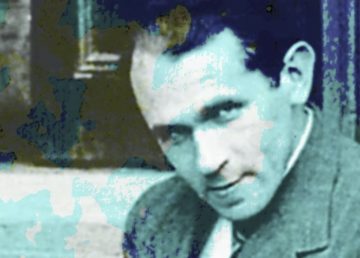David Stromberg in The Hedgehog Review:
 Bruno Schulz is an author who never tires of being discovered. A writer and artist whose known corpus includes two slim collections of stories, a bundle of letters, and a handful of visual works, mostly drawings. Schulz was born in 1892 in Drohobycz, a small Galician town that was then under Austro-Hungarian rule. He died in that same town in 1942, shot in the head by a Nazi officer. His life and work would likely have been unknown but for the efforts of a handful of people for whom his work meant the world.
Bruno Schulz is an author who never tires of being discovered. A writer and artist whose known corpus includes two slim collections of stories, a bundle of letters, and a handful of visual works, mostly drawings. Schulz was born in 1892 in Drohobycz, a small Galician town that was then under Austro-Hungarian rule. He died in that same town in 1942, shot in the head by a Nazi officer. His life and work would likely have been unknown but for the efforts of a handful of people for whom his work meant the world.
Schulz was a master of the unrealized. He used language to give expression to the fancies of the mind. He wrote not about events but about the mental impressions of yearning, hoping, dreaming. He was rooted more firmly in the possible than the actualized. His words traveled on intellectual journeys of philosophical meandering. He brought his prose into the realm of the unfinished. This is part of what made him so attractive to readers in the post–World War II era. His imagination was an open field onto which others could project their own fanciful desire, nostalgia, and regret.
More here.
